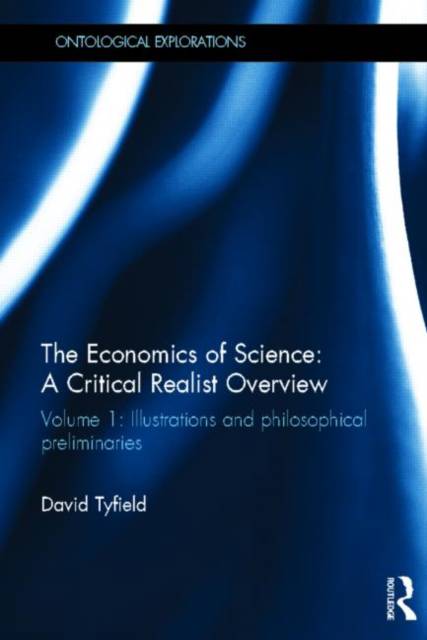
- Retrait gratuit dans votre magasin Club
- 7.000.000 titres dans notre catalogue
- Payer en toute sécurité
- Toujours un magasin près de chez vous
- Retrait gratuit dans votre magasin Club
- 7.000.0000 titres dans notre catalogue
- Payer en toute sécurité
- Toujours un magasin près de chez vous
The Economics of Science
A Critical Realist Overview: Volume 1: Illustrations and Philosophical Preliminaries
David TyfieldDescription
Dramatic and controversial changes in the funding of science over the past two decades have stimulated a huge literature trying to set out an "economics of science". Whether broadly in favour or against these changes, the vast majority of these frameworks employ ahistorical analyses that cannot conceptualise, let alone address, the questions of "why have these changes occurred?" and "why now?"
This book argues that the fundamental underlying problem in all cases is the ontological shallowness of these theories, which can only be remedied by attention to ontological presuppositions. Accordingly, Tyfield sets out an introduction to the existing literature on the economics of science together with novel discussion of the field from a critical realist perspective in ways that also develop critical realism as a philosophical project. The first of two volumes, this book explores substantive illustrations of the social challenges associated with the commercialization of science before turning to a critical engagement with critical realism's critique of mainstream economics that underpins the project as a whole.
Spécifications
Parties prenantes
- Auteur(s) :
- Editeur:
Contenu
- Nombre de pages :
- 248
- Langue:
- Anglais
- Collection :
Caractéristiques
- EAN:
- 9780415498357
- Date de parution :
- 25-11-11
- Format:
- Livre relié
- Format numérique:
- Genaaid
- Dimensions :
- 156 mm x 234 mm
- Poids :
- 526 g

Les avis
Nous publions uniquement les avis qui respectent les conditions requises. Consultez nos conditions pour les avis.






